The term “pioneer” evokes a gritty, somewhat romantic image; the first people in a new land or frontier to start carving out civilization from the wild and sometimes hostile bounty of nature all around them.
In every culture around the world it is the pioneers who command a certain respect and not a little bit of awe.
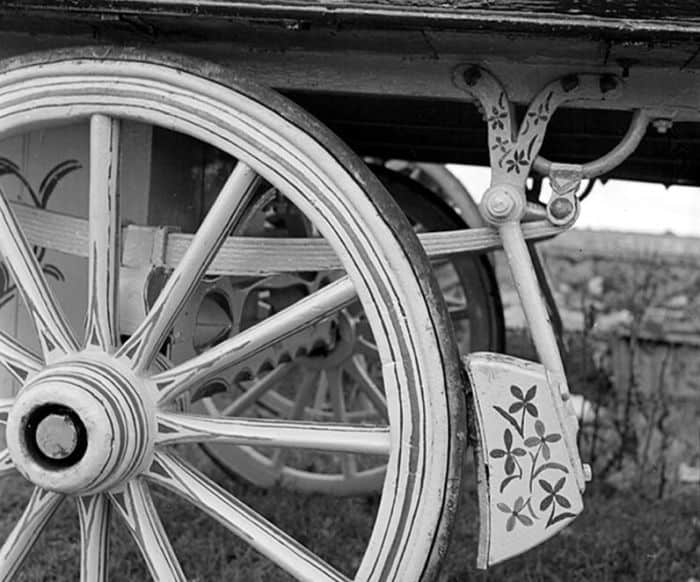
They are taking a big risk heading off into the unknown to expand the borders of their nation or empire. Throughout it all, they will have only themselves and their skills, along with possibly a few of their fellows as neighbors, to rely on.
Do you ever stop to consider how much you get done or achieve in your own life that is partially or even mostly dependent upon the goods, services and infrastructure made possible by the work of other people? Or indeed made possible by the legions of our forebears that came before us?
This is not to say you don’t work hard to accomplish your goals, but we all benefit everyday from the foundations of society that were laid down ahead of us. We can thank the pioneers of old for that!
As preppers, we can be far better prepared for the unexpected, including society toppling events, by taking inspiration from our pioneer ancestors and indeed swiping a couple of pages out of their playbook.
They, by necessity, had to practice a radical form of self-reliance: there was no calling in the experts for them; they were the experts! In today’s article I will be offering up 10 pioneer skills that are worthy of learning by modern-day preppers.
Do It Yourself or Do Without It
The pioneers of ages past lived lives of intense toil in which their continued existence was anything but guaranteed.
These are people that had to show up to raw, untouched places in the wilderness of a brand new frontier or even a brand land and do everything from scratch with what few tools and materials they brought with them, which were always limited.
They had to create shelter, learn the lay of the immediate area and the surrounding region, discover and then identify which plants and animals were helpful, and which ones were harmful, learn to hunt wild game that was good for eating, prepare the land for planting and so, so much more.
To say these people had grit is possibly the understatement of the century! If they needed something done it was up to them to figure out how to do it if they or someone in their party or burgeoning settlement didn’t possess the required skills or know-how.
Information and expertise were precious, precious things and we all benefit to this very day from the lessons they learned, bought-and-paid-for, in sweat, blood and tears.
But the result of all the toil and struggle was a people and later citizens who were profoundly self-reliant in all things. This is perhaps the most important lesson we can learn as preppers; extreme self-reliance should be an everyday value, not some pie-in-the-sky achievement that we will one day attain.
We don’t need to go back in time and live their experience to benefit from this wisdom. Instead we can adapt it for our own time and our own struggles.
In the sections below, I will share with you 10 pioneer skills lost to time our ancestors were intimately acquainted with. Ones that we should adopt again to improve our own self-sufficiency!
10 Lost Pioneer Skills
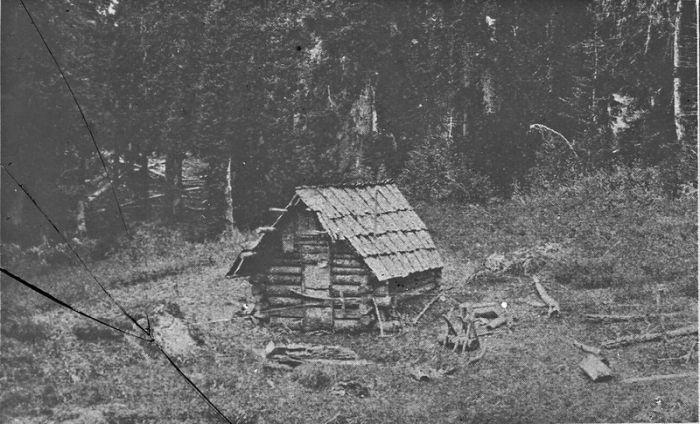
1) Shelter Construction
Many preppers today are acquainted with the importance of shelter in an outdoor survival situation, as it is one of the most crucial tasks when it comes to staving off death from exposure.
That being said, the pioneers of yesteryear would run circles around us; where your average prepper can probably slap together a primitive shelter like a lean-to or erect a tent, your average pioneer was at least skilled enough to build a small house or cabin for himself and his family.
Building even a small cabin sounds like a pretty intimidating undertaking foremost preppers today!
Correctly siting the structure, ensuring the foundation is sound, harvesting and preparing the timber, laying on the roof and then building the chimney and fireplace from locally-sourced stone. That requires a variety of real skills!
But these are skills you should endeavor to learn, even if you are never more than a journeyman.
It is far from out of the question that a SHTF event could be severe enough on a regional, national or even global level that it is literally society-toppling in scope and scale. That means you might be rebuilding society the old-fashioned way- house by house!
It might require a tremendous investment in terms of energy and material, but for serious long-term survival you will want a proper dwelling to survive in for the long haul, not some shabby lean-to or tent.
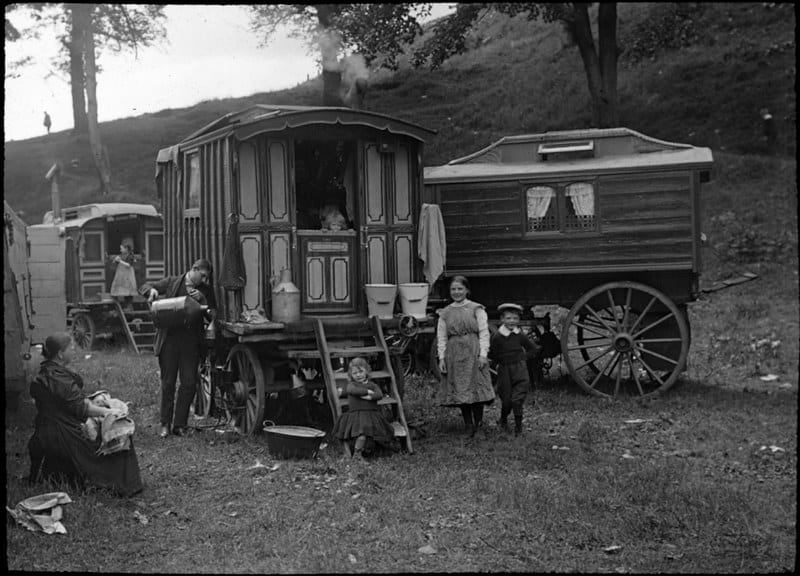
2) Land Navigation
Land navigation is seeing a renaissance among modern preppers and that is great news, but it is still not nearly the ubiquitous skill that it used to be. We should all strive to correct that!
Pioneers that were moving into any new and unexplored territory oftentimes only had the vaguest idea of where they were heading based on word-of-mouth directions from people who have been ahead of them, scouts, or primitive and oftentimes hideously inaccurate maps.
The smart ones depended upon their own observation and their own instrumentation to ensure they did not get lost. You had better believe that any pioneers worth the name who were moving into deep wilderness had with them a compass, and knew how to keep a pace count while moving from place to place.
This was the only way they had of determining which way they were heading and how far they had travelled. Together, and sometimes with a map if it was dependable, these elements would help them more or less accurately ascertain their position, and whether or not they had made a wrong turn, or just overshot the mark.
We have it easy today with the proliferation of GPS devices in our phones and as standalone tools, and while these things are wondrously accurate and absolutely worth having, we probably will not be able to depend on them forever in a particularly bad SHTF scenario.
What we can depend on (if we take the time to learn how) are our analog navigation tools, namely maps and compasses. We are especially lucky today that our modern maps are extraordinarily accurate, affordable and available almost anywhere.
You will be both lucky and wise if you obtain these maps for your area and the surrounding region well ahead of time, and make them part of your survival stash. But then the real work will begin: you need to learn how to use both together in order to accurately plot your course across the wilderness!
3) Knowledge of Plants and Animals
For the old-time pioneers, intricate knowledge of the flora and fauna in their region wasn’t just a hobby, and wasn’t relegated to a just-in-case skill; wild plants provided medicine, food and material.
The local animals were much the same. If they wanted to make use of these materials, they needed to know where to go to locate them and how best to harvest them. This required committing to memory a fair bit of nature lore.
Also just as important was a thorough knowledge of the plants and animals that can hurt them, or even kill them. I have often stopped to wonder how many unlucky pioneers blundered through nettles, poison ivy, poison oak or poison sumac before it was well and truly understood that these were plants you wanted to give a wide berth at all times.
I have also sometimes pondered what unfortunate soul first picked and ate a poison mushroom after confusing it with a similar look-alike. You can wonder much the same about a variety of dangerous or at least annoying animals and insects!
You can learn from the pioneer example by becoming intimately familiar with a variety of helpful and harmful plant and animal species in your region and even beyond, throughout your home country.
Your medicine might run out and your food supply could be all gone or spoiled, but you can replenish both with an intricate knowledge of the plants and animals that are good to eat and where you can find them or how you can catch them.
This takes a significant amount of study and a sharp eye for detail, but doing so will allow you to replenish your stocks from nature’s bountiful pantry.
4) Repair Skills
This is another skill that any pioneer worth the name would be at least competent at, and for a whole host of things. If something wore out or broke down that was needed, they had to be able to fix it if they wanted to make use of it.
If this was an essential item, the success of their expedition and their efforts would literally hang in the balance. This is one of those things that will suffer no excuse when the chips are really down.
Of course it is an easy thing to say “be skilled at repairing things” and another thing entirely to actually be good at it. If you stop to consider how many varied items that a pioneer might have to take care of all by themselves, it turns into quite an impressive feat that they were as independent and self-sustaining as they were.
In the course of a single day a pioneer might have to mend a hole in his clothing, repair a broken leather strap, reattach and true the wheel on a wagon, fix a leaky roof, and replace rusty or broken nails holding some contraption or structure together.
In order to do this he would have to know how to make primitive glue, sew, perform carpentry and blacksmithing, roofing, and more.
Of course there was no “standard of capability” in some pioneer handbook, and not every pioneer was equal in depth or breadth of their skill, but all of them would be expected to be generally capable of tending to their own tools and their own problems.
We should absolutely strive to do the same. You should be able to diagnose and repair problems with your dwelling, your vehicle, your firearms and even your BOB and your clothing.
And for any of you guys out here who would shirk at the idea of doing a little sewing, you can drop that right now; there is nothing girly about repairing your things when they need fixing, and a busted strap on your BOB could spell disaster when you can least afford it!
5) Trapping
Many pioneers made trapping their primary endeavor. This served important economic as well as provisional purposes for themselves, their families and their neighbors.
Hunting skills are of course excellent and can definitely put meat on the table, but the big shortcoming with hunting is that you can only be hunting in one place at one time.
Trapping, despite the modern connotations, is a highly efficient form of harvesting animals because traps work round-the-clock whether you are there to babysit them or not, requiring only periodic checking to see if they have nabbed any quarry or require resetting in case of a miss or failure.
A skilled trapper can set up a field of traps in various environments in an effort to bag a variety of animals. Trapping, on the whole, is a skill unto itself and a person could spend a significant fraction of their life mastering it.
Trapping successfully on a large scale requires intricate knowledge of the game you are after, what traps work best and in what environment and a sense of strategy, since you will be placing traps to catch animals interacting with their environment in different ways in different seasons.
The great thing about trapping is that you can fashion a variety of traps from various natural materials as well as discarded man-made detritus and expect both to work to excellent effect so long as your construction and your placement is good.
With little more than a knife and some quality cordage you can rig a variety of lethal or non-lethal traps just like your ancestor pioneers did.
This is definitely a skill you will want to add to your repertoire, especially if you are planning on surviving on your own or in a small group where manpower will be at a premium. A hunter may sleep, but a trap set never tires!
6) Tanning and Fur Harvesting
This may come as a surprise to some of you but back in the day a pioneer could not simply run down to the local department store or shopping mall and pick up a bunch of new clothes.
Particularly egregious, if you ask me, was the lack of Bass Pro Shops. What were you supposed to do when boots, waders and other cold or nasty weather gear was required?!
All joking aside, pioneers instead made use of what they had to the best effect possible. As it turns out, what the pioneers had at their disposal for clothing and other goods was the skins and furs of the animals they caught.
But this was enough most of the time. With more time, labor and the right materials skin could be converted into sturdy leather, useful for all kinds of things, and as you know it is a material we still use in abundance today. Even more valuable in cold climates was the fur of animals equipped with a warm coat.
Rabbits, foxes, bears and other animals could furnish a skilled hunter or trapper with a pelt that could then be converted into insulating outerwear of all kinds. Animal pelts and leather were also valuable trade commodities that could purchase a pioneer anything he could not craft or obtain for himself.
If you are thinking about long-term survival in an austere environment after the world goes pear-shaped, but you are only planning on harvesting animals for their meat and nothing else, you are planning to throw away extremely valuable materials in the form of the animal’s skin and pelt.
But these materials will do no good if you don’t know how to correctly harvest them, preserve them and use them in a meaningful way.
This is something you should absolutely undertake as a prepper. It is oftentimes gross and smelly work, but the result of your labors will be material that is priceless for crafting warm clothing and durable soft goods. With a little time and effort, you will look like a veritable pioneer yourself!
7) Butchery
Before you become too certain that you’ll be eating complete meals of high quality meat procured from the wild game you’re going to shoot or catch, ask yourself if you know what you’re going to do with it once you catch it.
Specifically, do you know how to best process the carcass of the animal in order to make the best use of the meat? This is important not just for preparation at dinner time, but also for preservation, which we will get to in a minute.
You had best believe that the pioneers of old did, and had to be uniformly excellent at it. Shoddy or amateur butchery could see valuable meat wasted, or at worst even ruin the meat that you worked so hard to get.
This is a sustainment skill like any other that a typical pioneer would rely on. It was not enough to have a camp butcher, although most camps and settlements did. If a pioneer was alone or out working as part of a duo in remote country, they would need to be reasonably skilled at preparing meat that was caught for eating.
You will be under the same auspices whenever you are living off the grid in a bug-out situation. Most animals cannot be roasted whole (like fish can) and will require varying degrees of preparation both for health reasons and for efficiency.
Correctly prepared meat cooks more evenly and tastes better than meat that is haphazardly hacked off the carcass. This is another instance of hard, gross and often smelly work, but it is work that must be done if you want to prosper in the wild! Of course, vegetarians need not apply…
8) Food Preservation
For pioneers, any kind of waste that could be avoided was anathema, and this edict was doubly true for any provision as essential as food. Pioneers knew how to preserve all kinds of food in order to maximize their return on investment when it came to their efforts.
Vegetables, fruits and meat were all preserved when possible in order to pad the pantry for the long winter or time of lack that would inevitably come.
The pioneers from long ago did this using all kinds of ingenious methods that are still viable today, including salting, pickling and smoking.
This was an especially popular approach with meat, since the harvest of a large game animal could produce a quantity of meat that even a couple of families cannot hope to eat before it spoiled.
Preservation was the only way to keep them viable for any amount of time after a kill. It was also done to ensure rations were available for long journeys into unknown territory.
Pemmican, jerky, dried berries and more were all popular trail food and produced by some of the most common methods of preservation available to pioneers.
We do plenty of our own food preservation today, including such ubiquitous methods as canning, but our preservation is typically made possible by modern technology, and the conveniences built-in to our modern kitchens.
That is all well and good, so long as you know how to put them to use in order to prolong and preserve your food supplies to keep them fresh.
But even so, you will not have those “luxury” appliances after the end, and for that reason it is a good idea to keep one or two primitive methods of preservation under your hat!
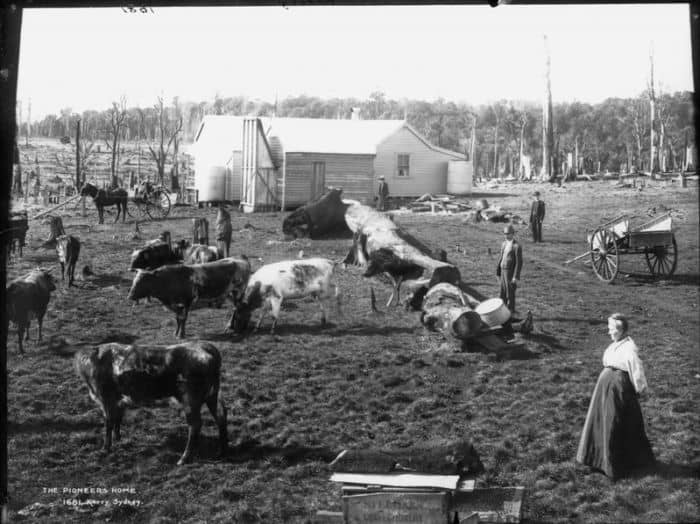
9) Animal Husbandry
Humans have raised animals on farms for millennia, and pioneers who had the skills and the breeding stock to start with certainly did for the benefit of everyone.
Farm animals can be raised for all kinds of products: chickens for their eggs and meat, cows for meat and milk, pigs for delicious pork of course, and goats for meat as well as milk, though this is less popular today.
Other animals can be raised for their wool or hair, another source of comparatively rare fiber for the pioneer.
Raising and taking care of animals is an awful lot of work, and requires many specialized skill sets along with a fair bit of room, unless someone only wants to raise a handful of chickens or goats. But the results are so often times worth it, and serve as one of the best hedges against starvation that anyone could hope for!
But aside from the occasional backyard chicken coop, people who did not grow up on a working animal farm often have no idea whatsoever what is required in the raising and care of animals.
The pioneers did, and those skills were often passed on through the generations of a given family, father to son, on and on down the years.
It might not be a skill you have considered before, since most animals are not particularly portable and if you are planning on bugging out your animals will likely not be going with you, but none the less you should learn the basics of animal husbandry.
There are farm animals all over the world, it is not impossible to domesticate certain species of wild animal and breed them in captivity.
These are skills that are worth passing on, and more importantly, are an essential part of any self-reliance plan for preppers. Take the time to get at least a basic education in animal husbandry; you might yet be glad you did.
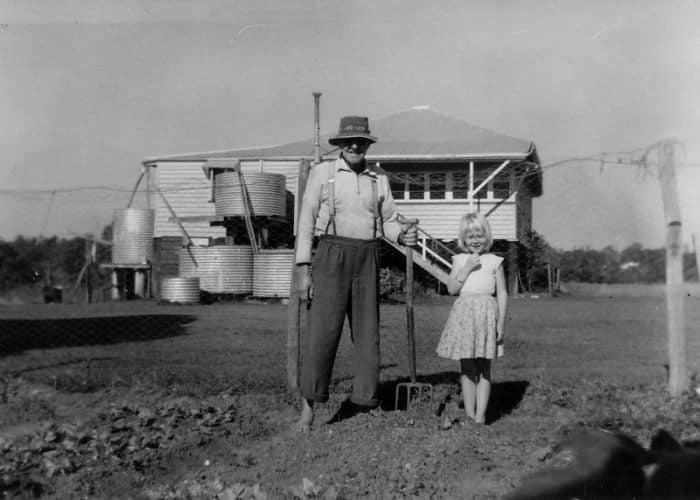
10) Gardening and Cropping
Gardening and the planting of crops on a larger scale are not lost skills in the greater sense of things, but unless someone is a serious enthusiast or a professional farmer they are highly unlikely to understand the mysteries and the intricacies of planting to ensure a bountiful harvest.
I can promise you pioneers did, even if they were not farmers by trade. This was just one more way to ensure they had the materials and the food they needed if they could not trade for it, gather, or otherwise get their hands on it.
Most folks are not green thumbs, and that is not a surprise. Pretty much everyone knows that you can stick a seed in the ground, cover it with dirt, water it and have a reasonable expectation of seeing some green sprout in a matter of days or weeks.
But that is where most folks’ working knowledge of gardening or cropping ends. There’s so much more to it than that, including such arcane subjects as soil composition and health, crop rotation, seasonal planting, pest prevention and deterrence, and much more.
This is yet one more permaculture skill that any serious, long-term survivor should endeavor to learn even if it is not their primary method of producing food and other resources.
Much like trapping, the planting of crops, even if it is just a small garden, will produce returns out of all proportion with the effort that went into it up front, and once your plans are established all they require is periodic upkeep and regular watering. They will take care of themselves from then on, until it is time to harvest them!
Conclusion
Like so many other lessons, history provides us with many examples of ingenuity, skill and tenacity that we can learn from in order to improve our own performance today.
The pioneers of eras gone by can furnish us many such lessons in self-sufficiency, and the skills that they typically possessed can serve as a useful template for our own prepping.
Review this list of lost pioneer skills above and see if some or all of them do not warrant inclusion in your SHTF survival plan!
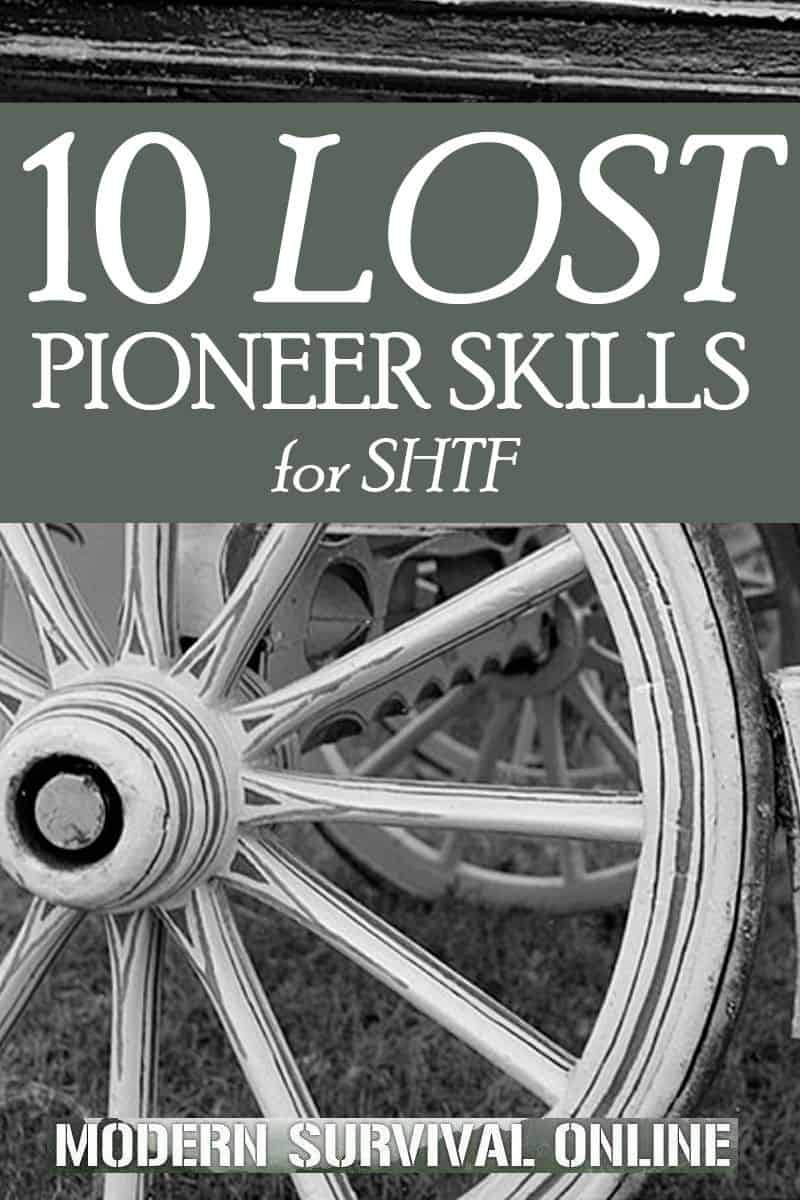
via Modern Survival Online https://ift.tt/31z7IXG
No comments:
Post a Comment